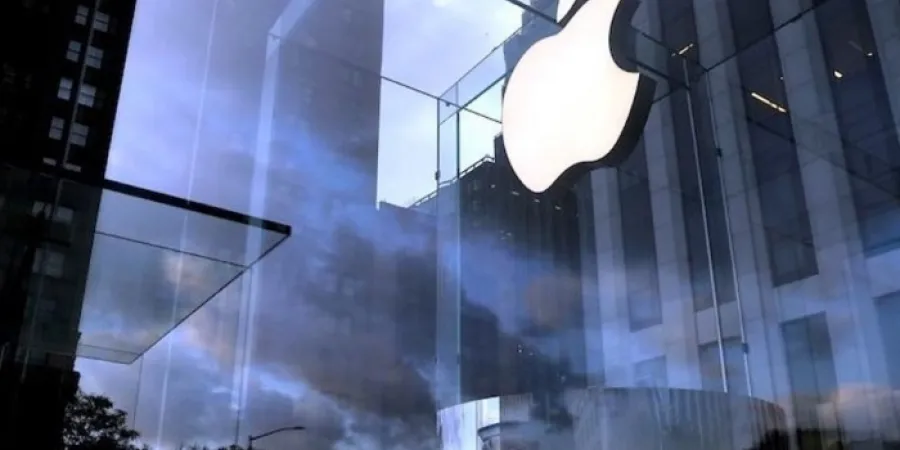Following strong criticism, Apple delays release of online child safety tool
Last month, the tech giant announced the development of a new system that scans pictures as they are uploaded to the cloud in an effort to combat the spread of child sex abuse images. But the company found itself hit by accusations of possible violation of user privacy
Cybertech
| 08/09/2021
Following harsh criticism over possible violation of privacy and misuse, Apple announced that it is delaying the release of its new system for online child safety. The company announced on Friday that "Based on feedback from customers, advocacy groups, researchers, and others, we have decided to take additional time over the coming months to collect input and make improvements before releasing these critically important child safety features."
Last month, Apple announced a new and significant development with potentially far-reaching implications: the scanning of pictures as they are uploaded to the cloud in order to locate images with problematic sexual content including children. According to the company, it intends to use sophisticated technologies to scan a limited number of pictures identified as problematic by a number of entities such as the National Center for Missing and Exploited Children. The new development was supposed to be released in the U.S. at the end of the year, and later be expanded to other countries in accordance with local laws.
The release of the statement sparked a backlash by various privacy organizations that expressed concern over potential misuse of the technology, mainly by repressive regimes, and over lack of clear limits and of the possibility to carry out external supervision of the scale of the checking of content in personal devices. Among the opponents were employees of the company who filled the company's internal communications channel with hundreds of messages of concern, a rare occurrence at the company, Reuters said, quoting employees who asked not to be identified.
According to the Electronic Frontier Foundation, one of the leading nongovernmental organizations in the U.S. in the field of privacy rights in the digital age, Apple may intend to only scan a limited number of pictures, but it is actually a slippery slope. Any legislature or court in the U.S., as well as law enforcement authorities, could demand expansion of the scanning, and that is before what could happen in enormous and hard-to-refuse markets like China.
Apple should "be clear about why you’re scanning and what you’re scanning," said Matthew Green, a cybersecurity researcher at Johns Hopkins University. "Going from scanning nothing (but email attachments) to scanning everyone's private photo library was an enormous delta. You need to justify escalations like this." His comments were reported by Reuters.
Last month, the tech giant announced the development of a new system that scans pictures as they are uploaded to the cloud in an effort to combat the spread of child sex abuse images. But the company found itself hit by accusations of possible violation of user privacy
Following harsh criticism over possible violation of privacy and misuse, Apple announced that it is delaying the release of its new system for online child safety. The company announced on Friday that "Based on feedback from customers, advocacy groups, researchers, and others, we have decided to take additional time over the coming months to collect input and make improvements before releasing these critically important child safety features."
Last month, Apple announced a new and significant development with potentially far-reaching implications: the scanning of pictures as they are uploaded to the cloud in order to locate images with problematic sexual content including children. According to the company, it intends to use sophisticated technologies to scan a limited number of pictures identified as problematic by a number of entities such as the National Center for Missing and Exploited Children. The new development was supposed to be released in the U.S. at the end of the year, and later be expanded to other countries in accordance with local laws.
The release of the statement sparked a backlash by various privacy organizations that expressed concern over potential misuse of the technology, mainly by repressive regimes, and over lack of clear limits and of the possibility to carry out external supervision of the scale of the checking of content in personal devices. Among the opponents were employees of the company who filled the company's internal communications channel with hundreds of messages of concern, a rare occurrence at the company, Reuters said, quoting employees who asked not to be identified.
According to the Electronic Frontier Foundation, one of the leading nongovernmental organizations in the U.S. in the field of privacy rights in the digital age, Apple may intend to only scan a limited number of pictures, but it is actually a slippery slope. Any legislature or court in the U.S., as well as law enforcement authorities, could demand expansion of the scanning, and that is before what could happen in enormous and hard-to-refuse markets like China.
Apple should "be clear about why you’re scanning and what you’re scanning," said Matthew Green, a cybersecurity researcher at Johns Hopkins University. "Going from scanning nothing (but email attachments) to scanning everyone's private photo library was an enormous delta. You need to justify escalations like this." His comments were reported by Reuters.



